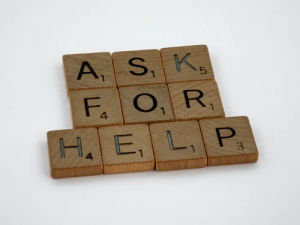Mental health issues are sky-rocketing in the world and with this spike come tremendous tragedies. Students these days are labeled as the “anxious generation”, they stress about anything and everything. Will this be on the test? Did I forget to bring a calculator? Will I get too cold if I sit under the window? Why does anything matter? What will I eat in the cafeteria? Students’ minds are being ambushed by anxiety, depression, OCD, ADHD and eating disorders. It’s causing not only a decline in their academic performance, but their overall well-being as well.

Who’s Struggling?
Too many people are facing internal battles everyday and have no outlet available for them to seek help. This silent suffering only exacerbates their anxiety, loneliness, and rationalization process, leading to life altering and/or threatening conditions. Sadly, children have become the predominant victims of mental health deterioration. In fact, 1 in 10 people suffer from some type of mental health issue, while 1 in 5 children have a diagnosable mental health related issue. This means that roughly 20% of young students are facing real uphill battles to do well in school. They are juggling their challenging academics, chaotic extracurricular activities, stressful social lives and their emotional stability. Students these days are hanging on by a thread and schools are one of the best places to protect the needs of students.
Numbers Don’t Lie
Unfortunately, 50% of mental health issues arise by the time someone is 14 years old and 75% of all of them occur by the time someone is 24. Many children these days struggle to make it through their childhood without being plagued by mental health obstacles. To make it even more alarming, a staggering 67% of people ages 18 to 24 suffering with anxiety and/or depression do not seek psychological help. It is self-evident that if a person is not in the right state of mind then learning becomes increasingly difficult, if not impossible. A third of students have expressed that the negative condition of their mental health is causing them to fail in school. News flash: students need help and they need it now.
How Are We Just Noticing?

Many students suffering with a mental illness do not initially recognize what and how they are being affected. Mental health problems often gradually seep into someone’s life and do not appear overnight. This is also why many parents fail to notice the symptoms of their child’s mental illness. Only 7% of college parents reported that their child was or is struggling with mental health issues, however due to previous statistics stated, that is obviously not representative of reality. Our society is just becoming more “woke” about the warning signs of mental health, so there’s a lot that we still have to learn.
Signs Someone is Struggling
People who struggle with mental health issues are affected in various ways. Some people are dramatically affected by their internal obstacles, while some people’s mental health issues grow at a slower rate and are more difficult to pinpoint. However, five very common signs that someone is experiencing a toll on their mental health are if they struggle with constant fatigue, physical pain, perfectionism, lack of emotion and avoidance.
Students Need Resources

It should be no surprise to anyone that a decline in a student’s mental health can directly result in a decline in their learning and achievement in school. Mental health needs to be a student’s number one concern, even more so than their success in the classroom. Therefore, schools should provide more mental health resources (counselors, therapists, psychologists, and nurses) for their students in order to promote and normalize the act of getting help and talking about mental health. By providing resources for students in schools, this gives them a convenient outlet to seek help, while simultaneously encouraging many of the staff to be on higher alert of the warning signs of mental illnesses.
Schools need to emphasize to their students that mental health is a priority and not something that should be easily dismissed. It should always come first. If schools have more mental health resources then this will show students how seriously their mental health should be taken. Schools are slowly becoming better at providing more accessible help to their students, but they have a long way to go. The sooner that schools provide their students with easy access to counselors, therapists, and nurses then the better off students will be.
Written by: Olivia Fitzgerald
